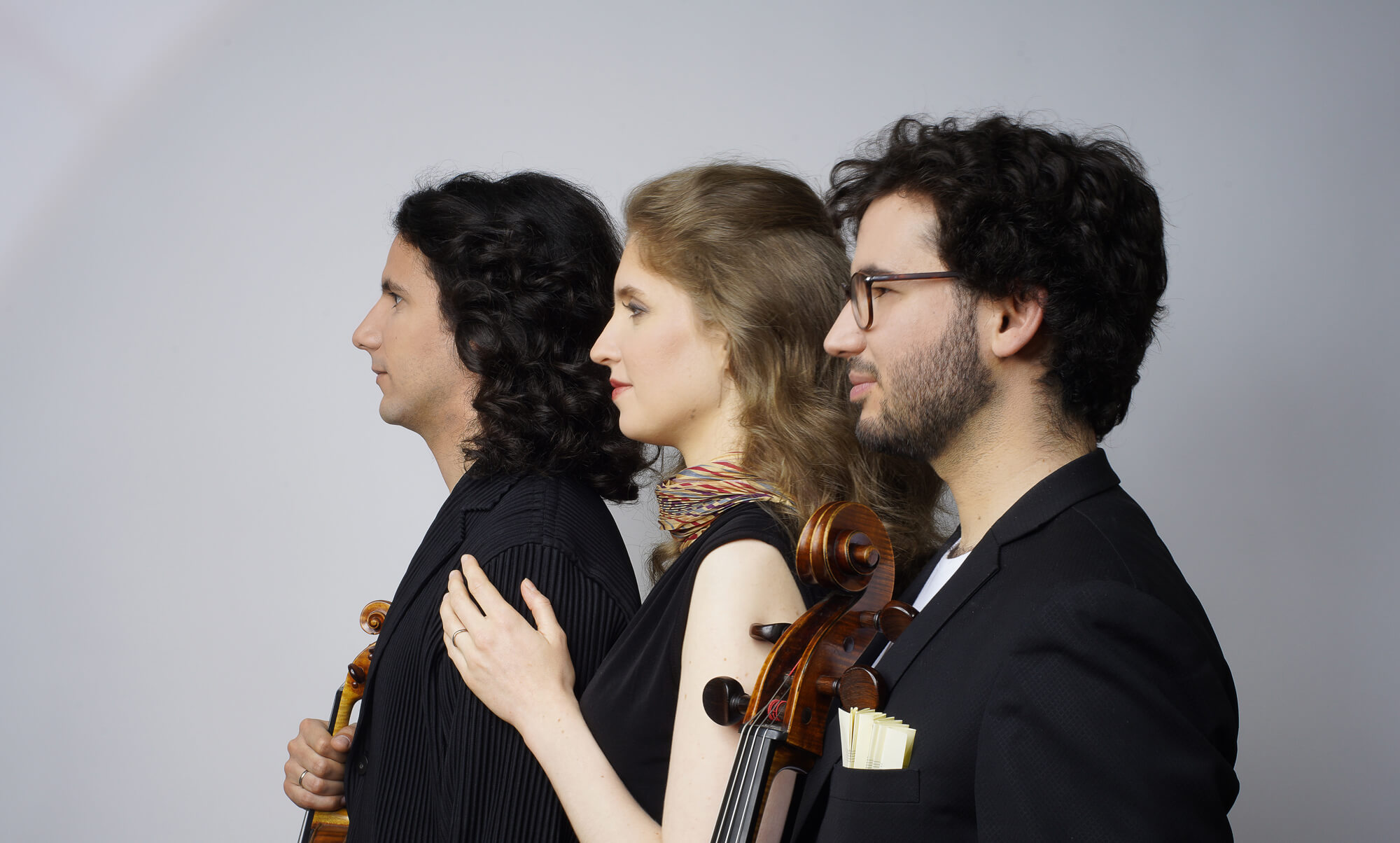FROM IRELAND TO SCANDINAVIA
(as part of the Ponticello Festival)
Friday, October 10, 2025 at 7 PM
Starting from CHF 15.-
Tickets available online or on site on the day of the concert
Crowned with international awards and acclaimed by the press since the release of its first CD on the Aparté label, the Trio Ernest celebrates the Frank Martin Odyssey. For the second evening of its festival, Ponticello invites the trio to present one of the composer’s masterpieces: a trio inspired by traditional Irish melodies. From the Emerald Isle to the fjords of Norway, the journey continues with the deeply romantic trio by Edvard Grieg.
— NATASHA ROQUE ALSINA, piano
— STANISLAS GOSSET, violin
— CLÉMENT DAMI, cello
PROGRAM
FRANK MARTIN - Trio sur des mélodies populaires irlandaises
EDVARD GRIEG - Andante con moto
Approximate total duration: 1 hour 15 minutes (no intermission).
Composed in 1925, the Trio sur des mélodies populaires irlandaises reflects Frank Martin’s interest in traditional music. Starting from a few Irish songs, he builds a free, expressive, and refined musical fabric where popular breath becomes a source of invention.
Composed in 1878 by Edvard Grieg, the Andante con moto was probably intended as the slow movement of an unfinished trio. However, its contrasts of character, deeply nostalgic discourse, and discreet yet expressive lyricism make it a fully convincing standalone work.
Starting from CHF 15.-
Tickets available online or on site on the day of the concert
Stay updated on the Odyssey!
Sign up now to receive the latest news directly to your inbox.


